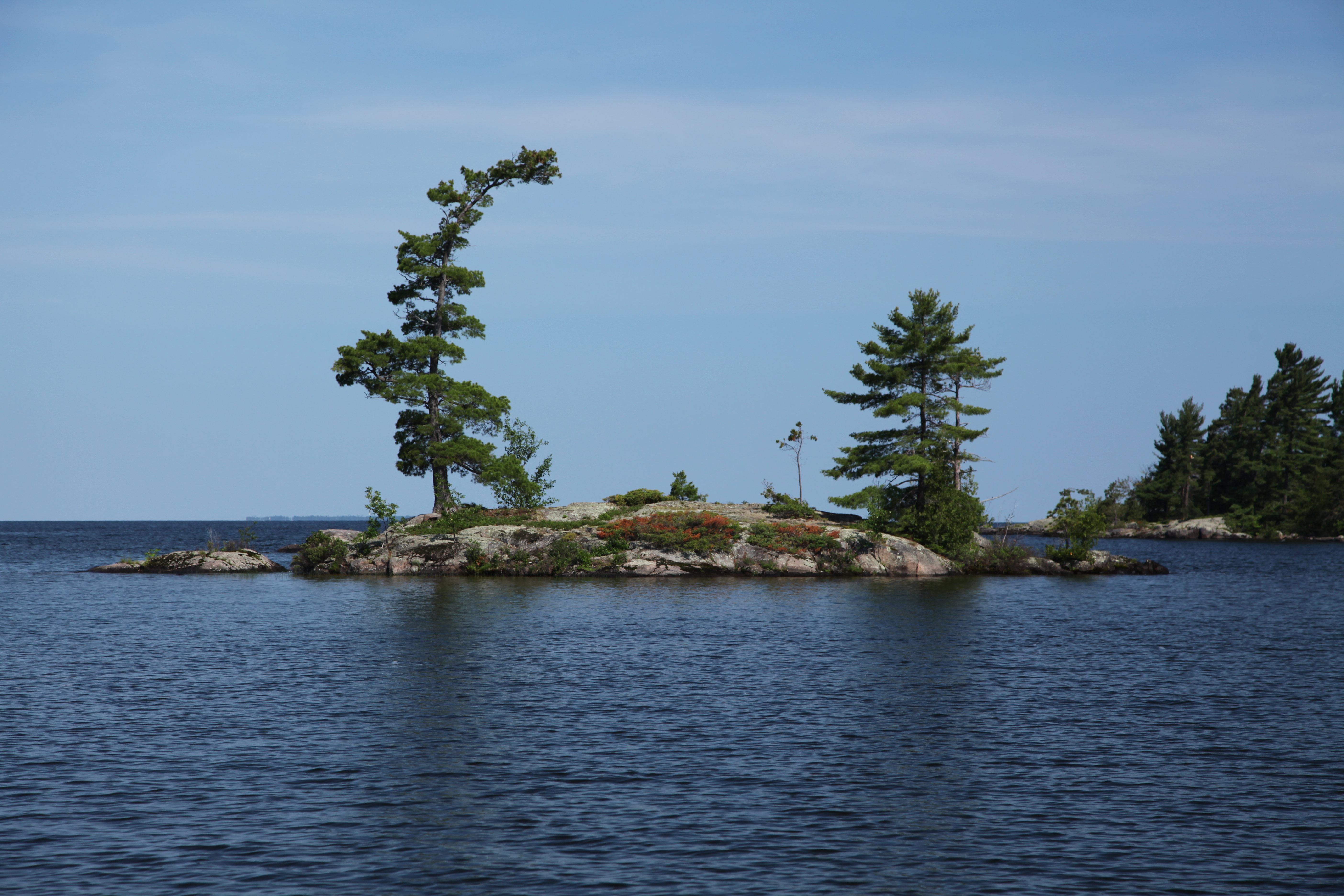Fish-WIKS News
» Go to news mainOntario PhD Student Updates Community
Fish-WIKS Ontario PhD student, Nicole Latulippe recently updated the community on her research progress. The article as published in the Nipissing First Nation newsletter, Enkamgak, follows.
I’m doing research with Nipissing First Nation as part of my PhD dissertation in geography at the University of Toronto. My work is self-directed, but supported by a larger project called Fish-WIKS.
Research objective: In this project, I seek to tell a story about the history and context of First Nations fisheries in Ontario, with Lake Nipissing as a case study. I’m interested in the relationship between First Nations and non-First Nations governance, including who has knowledge of, access to, and control over the fisheries. The goal is to highlight opportunities and challenges available to both First Nation and non-First Nation knowledge holders, resource users, and decision makers to enhance fisheries governance at multiple scales (Lake Nipissing, Ontario, and Canada) in the spirit of the treaty relationship.
Fieldwork highlights:
- 33 community members, including youth, elders, fishermen, women, non- and ex-fisher people, and technicians, have participated in the research so far. I have learned about life ‘back in the day’ on Lake Nipissing, perspectives on fisheries management, and practices that unify the community.
- At the National Archives I located correspondence, over 100 years old, that puts current issues into perspective: letters from non-First Nations men requesting commercial fishing licenses; letters from government officials decrying declining fish stocks and denying new commercial licenses; and a letter from government to a local Chief asserting that ‘Indians’ are expected to adhere to the same regulations as non-First Nations community.
- Recently I visited area museums on the French River, Sturgeon Falls, North Bay, and Callander. Lake Nipissing and the French River tend to be depicted as commercial assets that primarily serve the non-First Nations community, whether for trade, logging, commercial fishing, tourism or recreation. The French River Visitor Center was pretty good, but in general, the exhibits tend to marginalize the First Nations economy, both pre-existing and current.
Knowledge sharing so far: Two of my papers have been published in international Indigenous scholarly journals. In the first one I ask to what extent is the non-Indigenous researcher, or researcher trained in Western methodology, equipped or invited to engage the knowledge traditions of First Nation peoples. I respond with a treaty-based research methodology.
The other paper is a review of the literature on the concept known as traditional knowledge (TK). I found that the way people write about TK tends to fall into one of four categories: ecological, critical, relational, or collaborative. The different approaches to the study of TK can have very different outcomes and implications on the ground (not all beneficial to communities). It is helpful if parties to a TK research project explicitly situate themselves and their work somewhere along the spectrum. An earlier draft of the TK paper was well received at an Indigenous research conference in New Zealand. Researchers in the room told me to hurry up and publish so that they could spend less time on the literature review and more time in communities doing the work. If you are interested in either of these papers, please get in touch and I can send your way.
Next Steps: In the coming months, I will be talking to non-First Nation fisheries technicians and decision-makers about the approach of the Ontario Ministry of Natural Resources to fisheries management. I’m interested in their perspective on fisheries science, TK, commercial fisheries, and aboriginal and treaty rights. Equipped with all my interview data, I will then begin to analyze and write up the results. I expect to write about policy (including a comparative piece contrasting Ontario/Canada with New Zealand, where they have legislative structures in place to support Maori fisheries governance), environmental justice, and the politics of competing knowledge, management, and governance systems. I plan to communicate results in academic as well as community settings.
For more information, please contact me at Nicole.latulippe@utoronto.ca or (647) 458-5662.
Recent News
- Muiwatmnej Etuaptmumk Conference 2023 LiveStream
- Knowledge Pluralism in First Nations’ Salmon Management
- Learning Lodge on Mi’kmaw Livelihood Rights
- RoseAnne Archibald elected as national chief of Assembly of First Nations
- Mary Simon named as Canada’s first Indigenous governor general
- Mi'kmaw‑Led Conservation Webinar Series ‑ Thurs March 25 at 6 pm
- FishWIKS team members Lydia Ross and Lucia Fanning publish paper on informed management decision‑making
- FishWIKS team member Nicole LaTulippe co‑authors paper on need to make way for Indigenous research leadership
